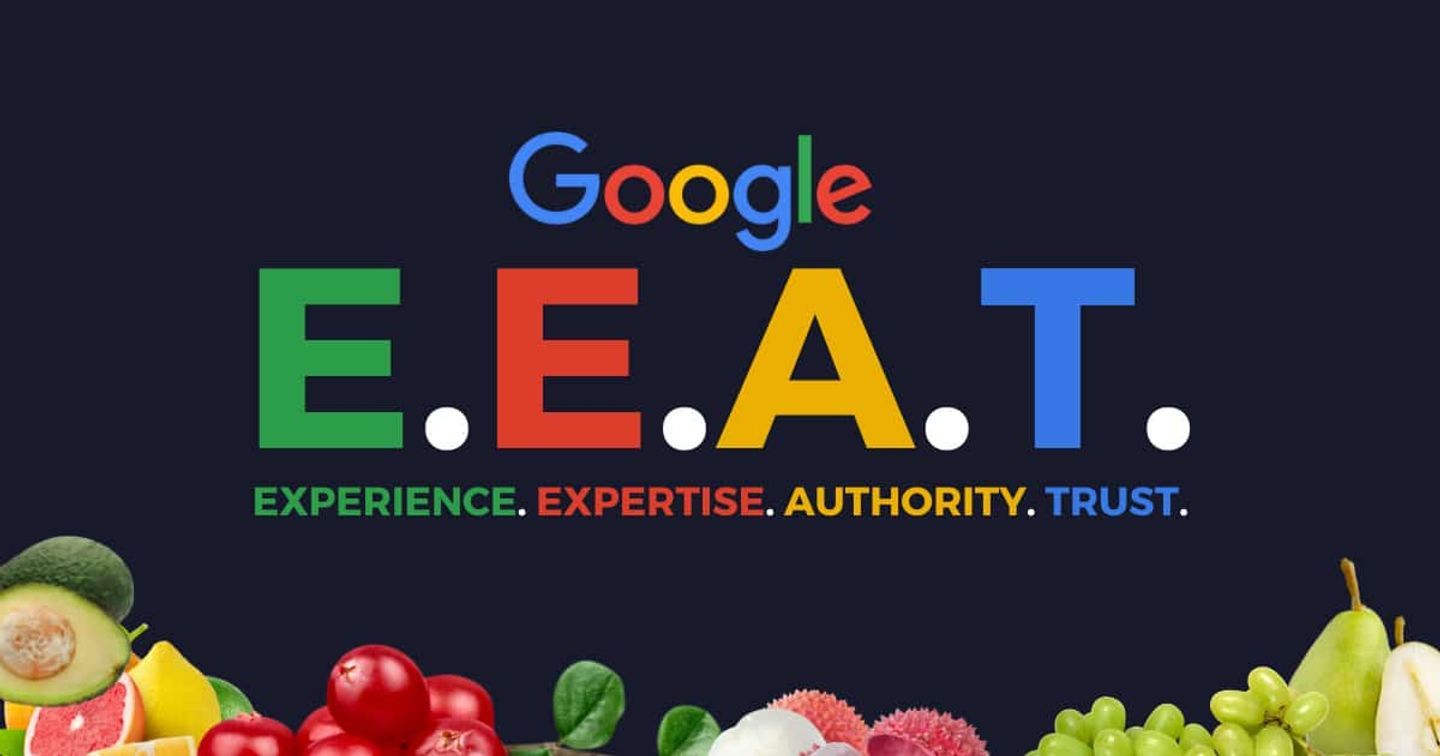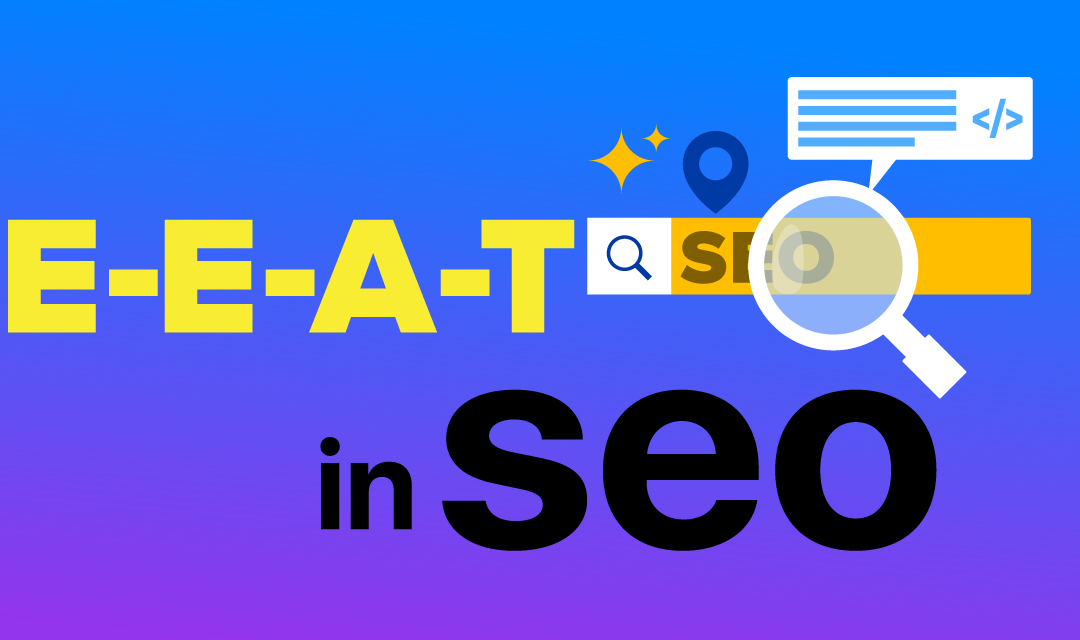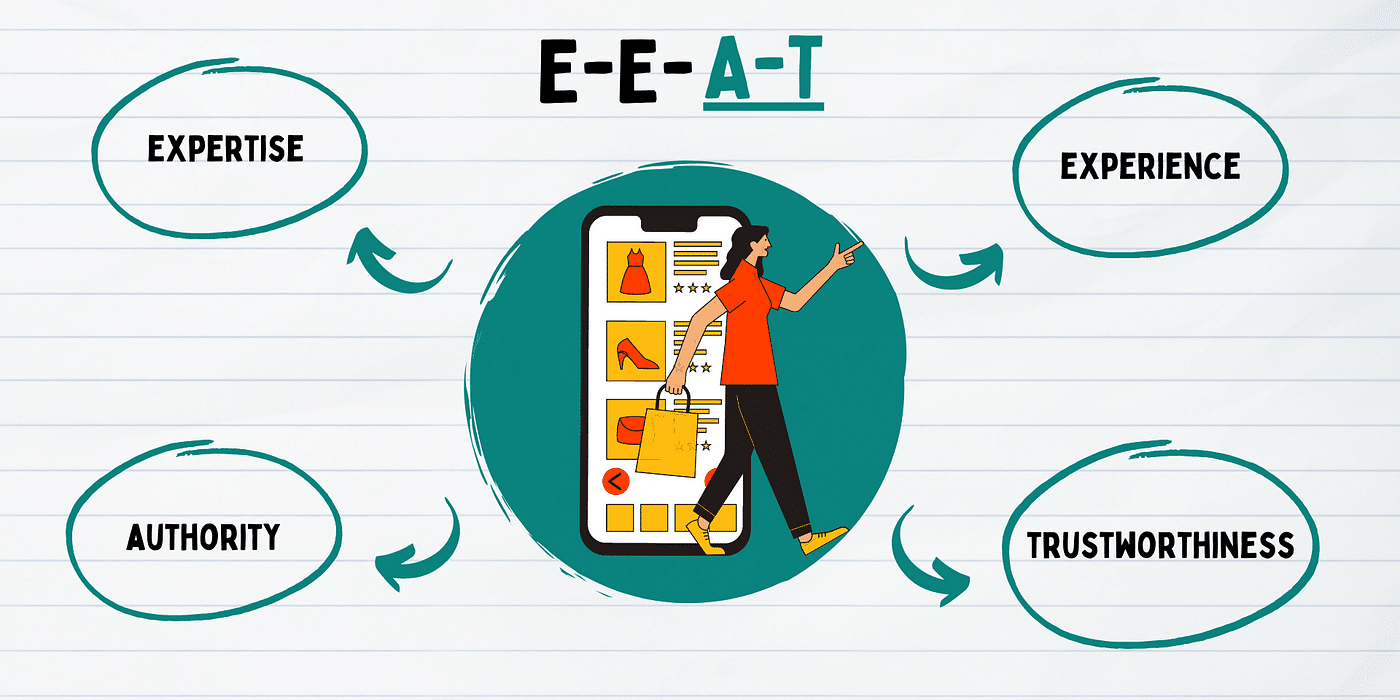In today’s digital age, search engine optimization (SEO) has become a vital aspect of any successful online presence. As more and more businesses and individuals turn to the internet as their main platform for marketing and communication, it has become increasingly important to ensure that their content is visible and easily accessible to their target audience. This is where SEO comes into play – a set of strategies and techniques aimed at improving a website’s ranking on search engine results pages (SERPs). However, with the constantly evolving landscape of SEO, it’s essential to keep up with the latest trends and best practices to stay ahead of the competition.
One such trend that has gained significant importance in recent years is E-E-A-T – Expertise, Authoritativeness, and Trustworthiness. It refers to the three factors that Google uses to evaluate the quality and credibility of a website’s content. In this article, we will delve deeper into the concept of E-E-A-T and how it affects SEO, along with some practical tips on how to improve your website’s E-E-A-T for better search engine rankings and overall online success.
Understanding E-E-A-T in SEO
Before we dive into the specifics of E-E-A-T and its impact on SEO, let’s first understand what it actually means. E-E-A-T stands for Expertise, Authoritativeness, and Trustworthiness, and it was first introduced by Google in its Search Quality Evaluator Guidelines in 2014. It is a set of criteria used by Google to evaluate the quality and relevance of a website’s content, particularly in the field of YMYL (Your Money or Your Life) pages.
According to Google, YMYL pages are those that “could potentially impact the future happiness, health, financial stability, or safety of users.” This includes pages related to medical advice, financial information, legal issues, news and current events, and more. Therefore, Google places a high level of scrutiny on these types of pages, and E-E-A-T plays a crucial role in determining their ranking on search engine results.
What is E-E-A-T?
E-E-A-T is essentially Google’s way of determining the expertise, authoritativeness, and trustworthiness of a website’s content creators. In simple terms, it involves evaluating the knowledge, experience, and authority of the individual or organization responsible for creating the content on a website. This is especially important for YMYL pages, as having inaccurate or misleading information on these pages can have serious consequences for users.

E-A-T, or Expertise, Authoritativeness, and Trustworthiness, is how Google assesses the credibility and reliability of content creators on a website
For example, imagine searching for medical advice online and coming across a website with incorrect information that could potentially harm your health. This is where E-A-T comes into play – Google wants to ensure that the content provided by websites, especially YMYL pages, is accurate, reliable, and trustworthy.
Why is it important for SEO?
Now that we have a basic understanding of E-A-T, let’s explore why it’s important for SEO. As mentioned earlier, Google uses E-E-A-T as one of its criteria to determine the quality and relevance of a website’s content. Websites that score high on E-A-T are more likely to rank higher on search engine results pages, while those with low E-E-A-T may struggle to gain visibility.
Moreover, as Google continues to refine its algorithms to provide users with the most relevant and authoritative content, E-E-A-T will only become more crucial in determining a website’s ranking. This is particularly true for YMYL pages, where users’ safety and well-being are at stake. Therefore, it’s essential to pay attention to E-E-A-T when implementing SEO strategies for your website.
The Role of Expertise in E-E-A-T
The first element of E-E-A-T is expertise, which refers to the level of knowledge and experience of the individuals or organizations responsible for creating the content on a website. In other words, Google wants to ensure that the content creators are qualified and knowledgeable enough to provide accurate and reliable information to their audience. So how does Google determine expertise?

The initial component of E-A-T is expertise, indicating the depth of knowledge and experience possessed by the individuals or organizations responsible for the content on a website
How does Google determine expertise?
Google has stated that it primarily relies on two methods to evaluate expertise – the author’s reputation and the quality of the content itself. When it comes to the author’s reputation, Google takes into account various factors such as their academic qualifications, professional experience, awards and accolades, social media presence, and more. This is particularly important for YMYL pages, where having expert authors is crucial for providing trustworthy and reliable information.
Apart from the author’s reputation, Google also evaluates the quality of the content itself. This includes factors such as the accuracy, depth, and uniqueness of the information presented, as well as the use of credible sources and references. Content that is well-researched and backed by authoritative sources is more likely to be considered as coming from an expert.
Tips for showcasing expertise on your website
Now that we know how Google determines expertise, let’s look at some practical tips for showcasing it on your website:
- Highlight the qualifications and experience of your content creators: Whether you have a team of writers or freelance contributors, make sure to showcase their credentials and expertise on your website. This could include their educational background, professional experience, and any relevant awards or achievements.
- Provide author bios and bylines for each piece of content: Giving credit to the authors of your content not only adds credibility to your website but also allows users to see who is responsible for the information they are consuming. Make sure to include a brief bio and a link to the author’s social media profiles or website for added transparency.
- Use authoritative sources and references: When creating content, make sure to back up your claims with credible sources and references. This not only adds to the expertise of your content but also makes it more valuable and informative for your audience.
- Guest posts and collaborations with industry experts: Collaborating with other experts in your field can not only bring fresh perspectives to your content but also add to your website’s overall expertise. Consider featuring guest posts or conducting interviews with industry professionals to showcase their knowledge and experience.
The Significance of Authoritativeness in E-E-A-T
The second element of E-E-A-T is authoritativeness, which refers to the perceived authority or influence that a website has in its niche or industry. Essentially, Google wants to determine whether a website is considered a credible and reliable source of information by its target audience. So, what makes a website authoritative?

In essence, Google aims to ascertain whether a website is perceived as a trustworthy and dependable source of information by its intended audience
What makes a website authoritative?
There are several factors that Google takes into consideration when determining the authoritativeness of a website. These include the number and quality of inbound links, the website’s engagement and popularity on social media, and its overall reputation and influence within its niche or industry.
Google also places a high emphasis on the quality of the content itself when determining authoritativeness. This includes factors such as the uniqueness, depth, and value of the information provided, as well as the website’s user experience, design, and functionality.
Strategies for building authority for your website
Now that we understand what makes a website authoritative, let’s look at some strategies to help you build authority for your website:
- Create high-quality, informative content: As mentioned earlier, the quality of your content plays a significant role in determining your website’s authority. Make sure to create well-researched, valuable, and engaging content that adds value to your audience.
- Focus on building quality backlinks: Backlinks, particularly from authoritative websites, are crucial in establishing your website’s authority. Make sure to invest time and effort into building relationships with influencers and other websites in your industry to gain quality backlinks to your site.
- Engage with your audience on social media: social media has become an essential platform for building authority and trust with your target audience. Use it to engage with your followers, share your content, and establish yourself as an expert in your field.
- Improve your website’s user experience: A website that is easy to navigate, visually appealing, and functions smoothly is more likely to be perceived as authoritative by users. Make sure to regularly update and improve your website’s design and functionality to provide a positive user experience.
Trustworthiness: A Crucial Factor in E-E-A-T
The third and final element of E-E-A-T is trustworthiness, which, as the name suggests, refers to how trustworthy a website is perceived by its audience. In other words, Google wants to determine whether users can rely on the information provided by a website and whether their privacy and security are being protected. So how does Google measure trustworthiness?
How does Google measure trustworthiness?
Google uses various indicators to measure the trustworthiness of a website. These include factors such as the website’s security, privacy policies, and transparency regarding its content creators and business practices. It also looks at the overall user experience on the website, including factors such as page loading speed, ease of navigation, and functionality.
To ensure that users are receiving trustworthy information, Google also places a high emphasis on fact-checking and ensuring that websites do not provide misleading or false information, particularly for YMYL pages.
Ways to establish trustworthiness for your website
Now that we know how Google measures trustworthiness, let’s look at some ways to establish it for your website:
- Ensure your website is secure: Having an SSL certificate and HTTPS encryption is crucial for establishing trust with your audience. Not only does it protect their sensitive information, but it also signals to Google that your website is secure and trustworthy.
- Be transparent about your content creators: As mentioned earlier, providing author bios and bylines for your content creators adds credibility and transparency to your website. Make sure to be upfront about who is responsible for the information on your site to build trust with your audience.
- Have clear and concise privacy policies: Users are becoming increasingly concerned about their online privacy and security, so having a clear and concise privacy policy can go a long way in building trust. Make sure to outline how you handle and protect user data and provide easy access to your privacy policy on your website.
- Focus on providing accurate and reliable information: The most crucial factor in establishing trust with your audience is to provide them with accurate, reliable, and valuable information. Make sure to fact-check your content and cite sources to ensure that your audience can trust the information you provide.
Improving Your Website’s E-E-A-T for Better SEO
By now, you should have a good understanding of what E-E-A-T is and why it’s important for SEO. Now, let’s look at some practical tips on how you can improve your website’s E-E-A-T for better search engine rankings and online success.
Practical tips for optimizing E-E-A-T on your website
- Create high-quality, relevant content: As we’ve discussed throughout this article, the quality and relevance of your content are crucial in determining your website’s E-E-A-T. Make sure to create content that is accurate, valuable, and engaging for your target audience.
- Stay updated with the latest trends and best practices: The world of SEO is constantly evolving, so it’s essential to stay informed about the latest trends and best practices. This includes keeping up with Google’s algorithm updates and incorporating new techniques and strategies into your SEO efforts.
- Invest in building your expertise, authoritativeness, and trustworthiness: Improving your E-E-A-T requires a long-term strategy that involves continuously improving your expertise, building authority and establishing trust with your audience. This can involve investing in professional development, building relationships with influencers, and consistently producing high-quality content.
- Regularly audit and update your content: It’s essential to regularly audit your website’s content to ensure that it’s accurate, relevant, and up to date. Outdated or incorrect information can significantly impact your E-E-A-T and harm your SEO efforts.
Case studies of successful E-E-A-T implementation
To further emphasize the importance of E-E-A-T in SEO, let’s take a look at some case studies of websites that have successfully implemented E-E-A-T strategies:
Healthline.com
Healthline.com is a medical news and information website that has been able to establish itself as one of the most authoritative sources of health-related information online. It has achieved this by consistently producing high-quality, well-researched, and fact-checked content, as well as showcasing the expertise of its team of medical professionals and journalists. This has resulted in high E-E-A-T scores, leading to top rankings on Google for various health-related keywords.
NeilPatel.com
Neil Patel is a well-known digital marketing expert who has built his online presence by establishing himself as an authority in the field. His website, neilpatel.com, provides valuable information and resources for marketers and business owners, showcasing his expertise and knowledge. This has helped him gain trust and credibility with his audience, resulting in top rankings on Google for relevant search terms.
Conclusion: Why E-A-T Matters for Your Online Success
In conclusion, E-E-A-T is an essential aspect of SEO that cannot be ignored if you want to achieve online success. By focusing on improving your expertise, building authority, and establishing trustworthiness, you can improve your website’s E-E-A-T and increase your chances of ranking higher on search engine results pages.
Remember to regularly audit and update your content, stay up to date with the latest trends and best practices, and invest in building your expertise and credibility to ensure your website’s long-term success. With Google’s continued emphasis on providing users with high-quality, reliable information, implementing E-E-A-T strategies is crucial for any website looking to improve its SEO efforts.
